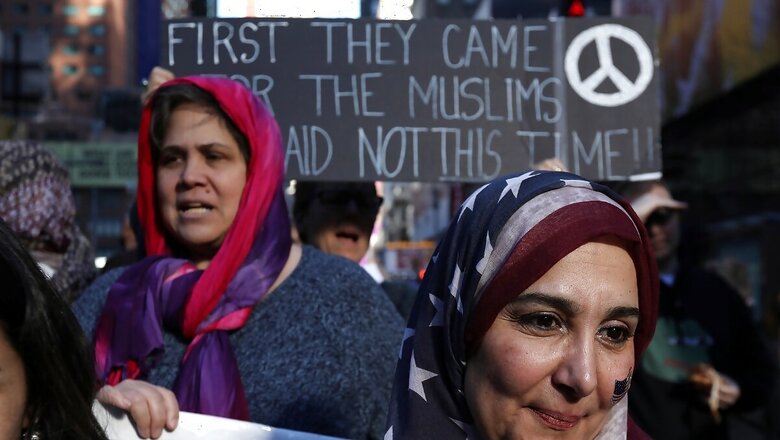
views
Tajikistan is set to implement a ban on the hijab and other Islamic garments, following the approval of a controversial law by its parliament. The bill is likely to cause an uproar among the mostly Muslim population of the tightly controlled former Soviet republic, which borders Taliban-ruled Afghanistan.
The upper house, Majlisi Milli, passed the legislation on June 19, prohibiting children’s festivities during Eid al-Fitr and Eid al-Adha, according to US government-funded Radio Free Europe (RFE). The bill, initially passed by the lower chamber, Majlisi Namoyandagon, on May 8, aims to curb the wearing of what it terms “alien garments.”
‘Proper education and safety’
The ban on children’s holidays is intended to ensure “proper education and safety” during religious observances, Radio Ozodi reported, citing a head of the Religion Committee. During the 18th session of the Parliament chaired by President Rustam Emomali, changes to Tajikistan’s laws concerning cultural practices, teacher roles in children’s upbringing, and parental duties were also endorsed.
Penalties for violating the new regulations include substantial fines. Individuals could face fines up to 7,920 somonis, while companies may be fined up to 39,500 somonis. Officials and religious leaders face even steeper fines, with penalties potentially reaching 54,000 and 57,600 somonis respectively.
The legislation has ignited debate within the country’s predominantly Muslim population, with officials linking such attire to Islamic extremism. According to Radio Free Europe, this decision led to the condemnation of the Union of Islamic Scholars and the declaration of “jihad” by some clerics in Afghanistan. Some religious figures, officials, university professors and bloggers in Tajikistan responded to these calls.
History
In 2017, Rahmon mandated a special commission to establish a “suitable” dress code for men and women after criticising women for wearing “foreign” black attire. His comments targeted the growing popularity of black Islamic dress in Tajikistan, despite previous denouncements dating back to 2015. This initiated a campaign against the hijab, with institutional leaders instructing employees to refrain from wearing it at work.
Tajikistan has a history of restricting the hijab, beginning with a Ministry of Education ban in 2007, initially targeting students and later expanding to encompass all public institutions. Despite claims of enforcement through special teams and occasional police actions, officials deny widespread crackdowns reported by some women.
The Central Asian country in recent years has promoted traditional clothing through campaigns advocating for national attire. Initiatives included widespread text messages encouraging the wearing of traditional Tajik outfits, culminating in the 2018 publication of a detailed guidebook on recommended attire.




















Comments
0 comment